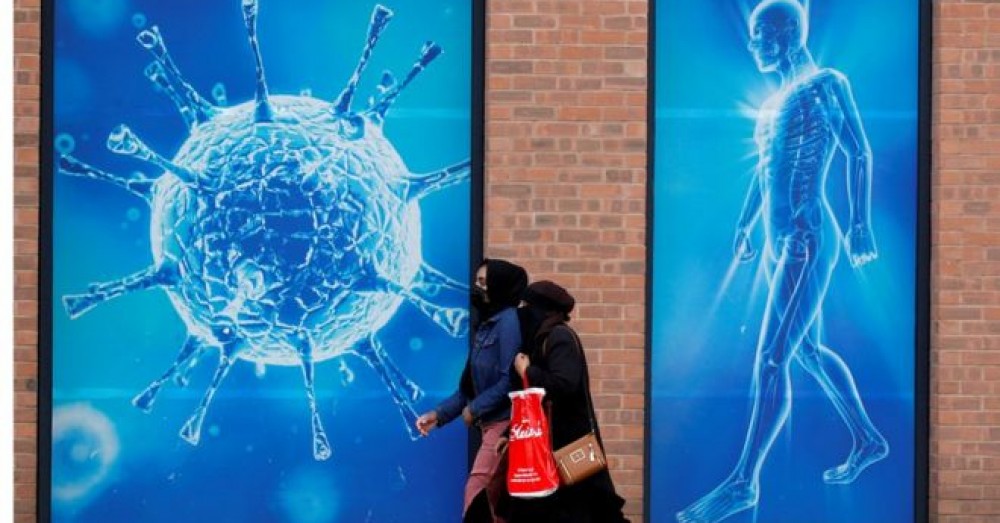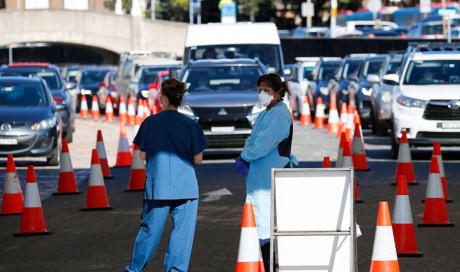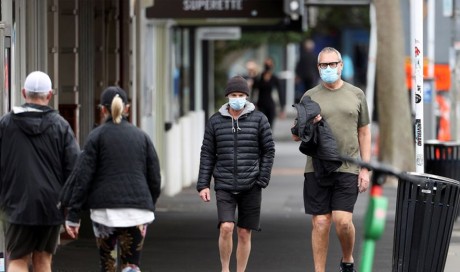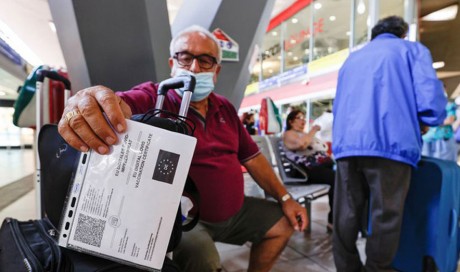The growth in cases of coronavirus may be slowing down, the largest study of the infection in England suggests.
A team at Imperial College London analysed samples from 84,000 people chosen at random from across the country.
They said the R number, the virus's reproduction number, appears to have fallen since measures including the "rule of six" were introduced.
However, they warn cases are high, with one in every 200 people infected.
The React study is highly influential, both due to its size and because it gives an up-to-date picture of how the virus is spreading. The last samples used in the analysis were collected as recently as Saturday.
It was the previous React report that found infections were doubling every seven to eight days in late August and early September.
This, in turn, led to warnings that there could be 50,000 cases a day by mid-October if that pattern continued.
Then the research group estimated the R number - the average number of people each infected person is passing the virus on to - was 1.7.
The latest analysis, of swab samples collected between 19 and 26 September, suggests the R number has fallen to about 1.1 - although the precise figure is uncertain.
The researchers said it was the first hint that measures such as the "rule of six", and heightened public concern about coronavirus, "may be having an impact on transmission".
Prof Paul Elliott from Imperial College London said: "This is a very critical period, we know in an exponential phase you very quickly get to a very large number of cases.
"There does appear to be a downturn in the rate of increase, the R number appears to have come down.
"Clearly nobody wants a full lockdown, but if we pay attention to public health messages on social distance, hand washing, face covering and testing and isolating, then I think we can turn the virus down."
However, Prof Oliver Johnson, from the University of Bristol, said the conclusion that cases were slowing down was "wrong and dangerous".
And he doubts both the old and the new estimates of the R value.
He said: "I suspect they were both wrong, and it was actually more like R=1.4 each time."
That period when cases were doubling every week means there is now far more of the virus around.
"What we found is the prevalence has gone up markedly, one in 200 people walking the streets on any one day has measurable virus," Prof Elliott added.
As the study tests people at random, not everyone who tests positive will go on to develop symptoms.
However, the increase was noted in all regions of the country and in all age groups.
Infection rates were highest among 18 to 24-year-olds, with one in every 100 testing positive for the virus.
Infection rates were much lower among the over-65s, but have increased seven-fold since the last report (from 0.04% to 0.29%).
"The idea that it's all younger people and 'that's fine' just isn't the case," said Prof Elliott.
This is only one of many sources of information - alongside the Office for National Statistics, disease modelling groups, hospital data and NHS Test and Trace - that the government relies on to assess the situation.
On Wednesday, the government's chief scientific adviser Sir Patrick Vallance said: "We don't have this under control at the moment. There's no cause for complacency here at all."
The latest UK coronavirus figures showed there have been a further 7,108 cases and another 71 deaths.
Last week, Mr Johnson introduced restrictions including a 22:00 closing time for pubs, bars and restaurants in England, with similar announcements in Scotland and Wales, and a 15-person limit on weddings.
Since then, further local lockdowns have come into force, including in north-east England, where households are banned from mixing indoors.
MPs are now expecting additional restrictions to be introduced in Liverpool, after some MPs met Care Minister Helen Whately.
The city has had a spike in cases, with a 16% positivity rate.
BBC Newsnight was told the measures would be harsher than those in place in the North East, and could include a ban on pubs serving drinks without food.
Meanwhile, other MPs said the case for routine testing of all NHS staff in England was "compelling".
The Health and Social Care Committee said it should be introduced as soon as possible before winter.
The government and NHS England told the committee they wanted to bring in routine testing of staff, but any plans depended on the capacity available.
Share This Post















